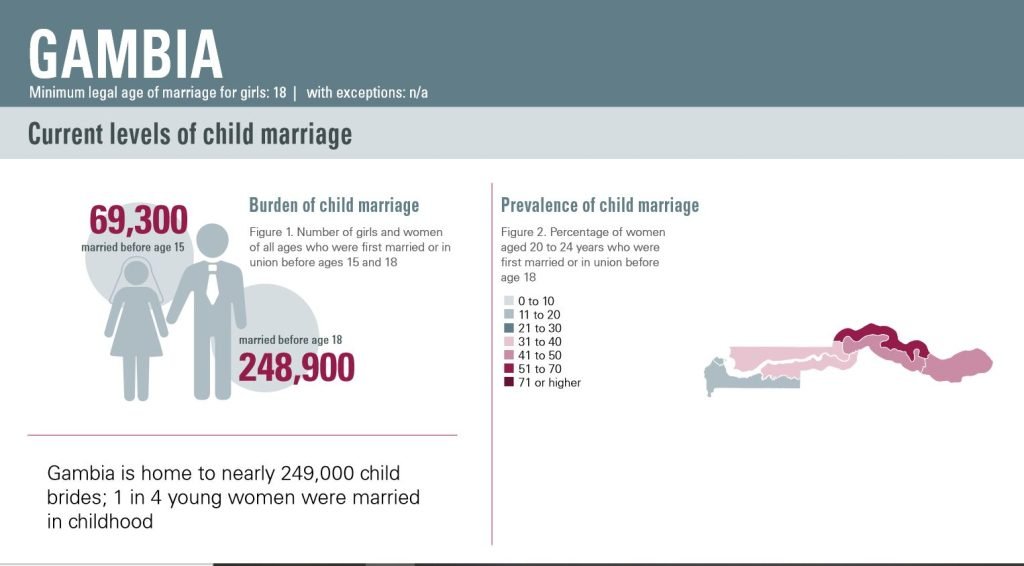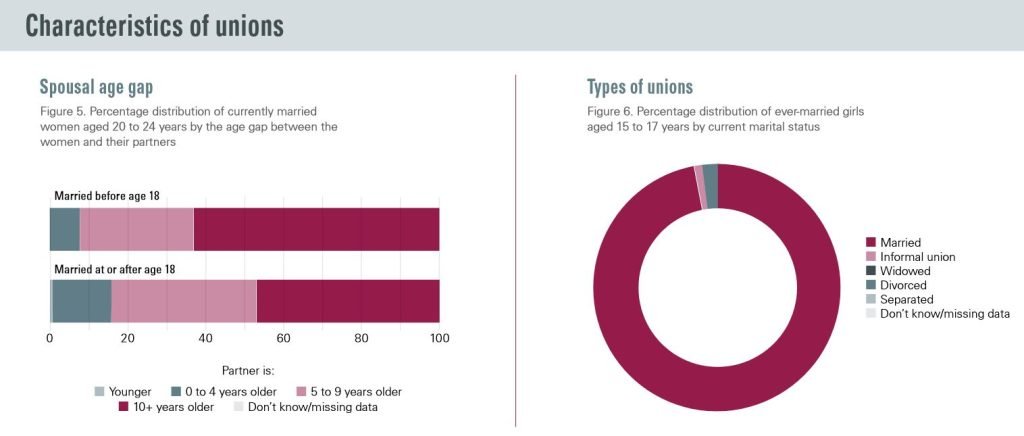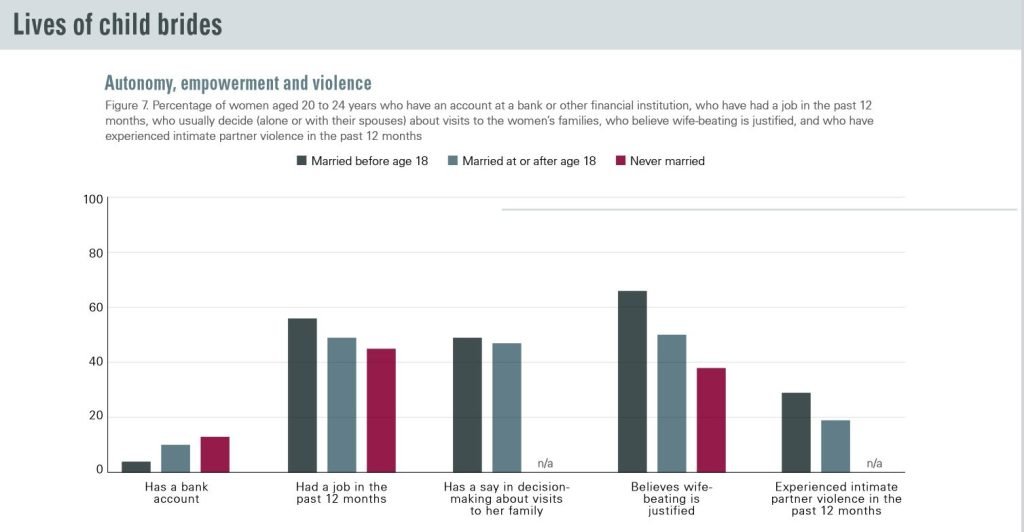By Ebrima Mbaye
Child marriage is globally recognized as a violation of the right of the child. It is defined as an act of marrying off girls who are below the age of 18.
Although there are laws in The Gambia that totally prohibits the practice, parents are still marrying off their girl child especially in the Central River, Lower River and North Bank regions of the country.
Data from UNICEF’s Gambia Child Marriage Profile shows that 69,300 girls in The Gambia were married before they turned 15 years old. The figures are even higher for those girls married before they turned 18 years, at 248,900.
Child Marriage is considered a traditional practice that continues to being an obstacle for girls’ education as well as denying them their childhood and threatens their wellbeing. Previous research has proven that girls who marry before 18 are more likely to experience domestic violence and less likely to remain in school.
Globally, more than 75 million young women aged 20 to 24 years, a quarter of them in Africa, entered their first marriage or union before they celebrated their 18th birthday, according to UNICEF’s Profile of Child Mariage in Africa.
“But the global profile of child marriage is changing. A growing child population combined with a slow decline in the practice of child marriage in Africa will put millions more girls at risk. If current trends continue, almost half of the world’s child brides in 2050 will be African,” the UN agency said.

Child Marriage in Gambia
In The Gambia, 23.1% of girls are married before the age of 18 and 5.6% are married before their 15th birthday, data published by Girls Not Brides sourced from the Demographic and Health Survey 2020 shows.
The lowest median age at first marriage for women aged 20-49 are in Kuntaur and Basse.
Data from Gambia’s 2018 Multi-cluster Indicator Survey, shows that highest rates of child marriage for women are found in Janjanbureh (55%), Basse and Mansakonko (47%), Kuntaur (44%), Kerewan (41%). The highest rates of child marriage for men are found in Kuntaur (5%), Janjanbureh (2%), Kerewan (2%) and Basse (1%).
Child marriage is prevalent within the Sarahule (46%), Fula (45%) and Wollof (34%) ethnic groups.
Laws to Protect Girls in Gambia
Section 216 of the 1997 Constitution on ‘Social Objectives’ provides for the right to protection of children by the state. Subsection 2 states that “The State shall pursue policies to protect the rights and freedoms of the disabled, the aged, children and other vulnerable members of society and to ensure that such persons are provided just and equitable social opportunities.”
Children’s Act, 2005 further protects children from “harmful social and customary practices”. Section 19 states the following:
“No child shall be subjected to any social and cultural practices that affect the welfare, dignity, normal growth and development of the child and, in particular, those customs and practices that are–
- (a) prejudicial to the health and life of the child; and
- (b) discriminatory to the child on the grounds of sex or other status.
Child Marriage Outlawed
Section 24 and 25 of the Children’s Act, 2005 prohibit child marriage and betrothal.
Section 24 states that “Subject to the provisions of any applicable personal law, no child is capable of contracting a valid marriage, and a marriage so contracted is voidable.
Section 25 (1) stated that “No parent, guardian or any other person shall –
(a) betroth a child to any person;
(b) make a child the subject of a dowry transaction; or
(c) give out a child in marriage.
Subsection (2) states that “A betrothal or marriage in contravention of subsection (1) is voidable.

Contributions to Child Marriage
A factsheet by Girls Not Brides, a global network of 1400 civil society organisations, stated that some of the key factors attributable to child Marriage in The Gambia could be categories in the following:
- Level of education: Girls without education tend to marry at a younger age than those who have completed primary or secondary school. 51% of women with no education were married as children, compared to only 10% with higher education.
- Poverty: Girls from The Gambia’s poorest households are more likely to marry as children (49%), compared to girls in the richest households (19%). Prospective husbands often give their parents money or jewellery or make promises, such as sending them to Mecca, in order to secure marriages.
- Pre-marital sex: Some parents reportedly marry off their daughters in order to avoid them becoming pregnant before marriage. Child marriage is also commonly perceived to offer some form of child protection in that it prevents girls from being propelled into sex work.
- Gender norms: Child marriage is generally considered a positive part of life and tradition in society, which is perceived to prepare girls for life.
Implications of child marriage on girls?
Child Marriage have been proven to have serious implications in the growth and development of children. Children exposed to child marriage in The Gambia are faced with some of this the following:
- Drop out of school: Children that are forced to marry either by their parents or close relatives leave school for marriage. This has caused many young girls to be housewives instead of educated young ladies despite their performances in school.
- Death at childbirth: Girls below the age of 18 are always a risk of losing their lives during childbirth. Medical personnel have justified that most of the girls that died during childbirth are those that underwent child marriage. This has caused significant loss of many young girls in CRR.
- Exposure to sex related activities: In Central River Region, girls below the age of 18 who are married usually are unable to contain the pressure of the early marriage. This and other compelling factors lead them to series of divorces, and after these divorces, they are usually with children and the unaffordability of cash to upkeep their families force them to be engaged sex related affairs.
- Mental health challenges: Young girls who marry before 18 years in most communities in CRR are force into those marriages. Psychologically, they are not ready to get married, but due to the pressure instilled by their parents lead them to marriages they do not want to engage in. This is the cause of mental health challenges on lot of young girls in the region.

Ban Not Implemented
In July 2016, the Children’s Act was amended to prohibited child marriage and establishes the minimum age for marriage as 18 years.
However, there is no minimum age of marriage under Islamic Sharia law, which is the dominant tradition governing family law in The Gambia.
In 2020, Halimatou Cessay, an advocate against child marriage, said despite the ban on child marriage in The Gambia, the practice is still rampant in the country.
Most cases occur in family settings where no one cares to report about the age of the child to the relevant authorities. “No one cares about how old the bride is especially looking at her physical structure. People assume that she is of age,” Ceesay is quoted as saying by The Point Newspaper
Gambia’s International Commitments
The Gambia has committed to eliminate child, early and forced marriage by 2030 in line with target 5.3 of the Sustainable Development Goals, and co-sponsored the 2019 Human Rights Council resolution on the consequences of child marriage, and the 2018 UN General Assembly resolutions on child, early and forced marriage. In 2014, The Gambia signed a joint statement at the Human Rights Council calling for a resolution on child marriage.
The Gambia ratified the Convention on the Rights of the Child in 1990, which sets a minimum age of marriage of 18, and the Convention on the Elimination of All Forms of Discrimination Against Women (CEDAW) in 1993, which obligates states to ensure free and full consent to marriage.
During its 2014 Universal Periodic Review, The Gambia agreed to examine recommendations to enact laws prohibiting child marriage and to raise the minimum age of marriage to 18. This commitment was fulfilled in 2016 with amendments to the Children’s Act.
Gambia ratified the African Charter on the Rights and Welfare of the Child in 2000. The Charter prohibits child marriage. Five years later, The Gambia ratified the African Charter on Human and People’s Rights on the Rights of Women in Africa which sets the minimum age for marriage at 18.


